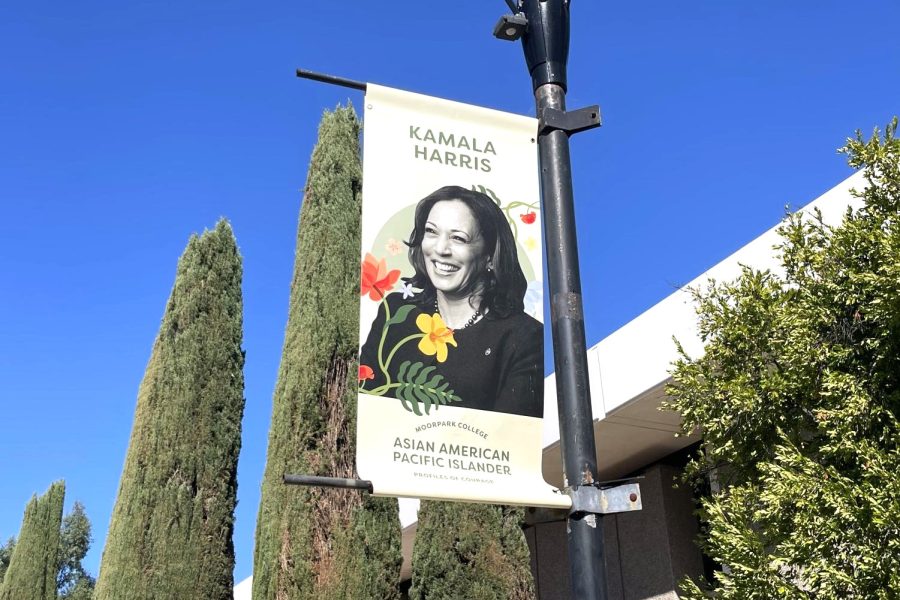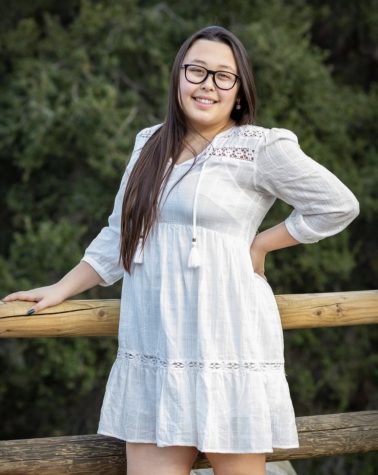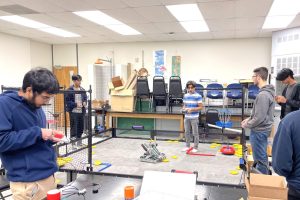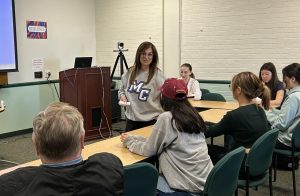Filipino American History Month: A period of commemoration, reflection and diplomatic action
Moorpark College features U.S. Vice President Kamala Harris on one of their Asian American Pacific Islander Heritage Month spotlight banners on Raider Walk. Filipino American History Month takes place four months after AAPI month, and Harris is set the visit the Philippines this coming November. Photo credit: Briana Cruz
October 31, 2022
October marked the start and end of several different occasions in the United States. Spooky Season was in full swing and the pumpkin spice craze once again took the coffee world by storm.
October also marked the month-long period of commemoration that is Filipino American History Month.
Filipino American History Month celebrates the arrival of the first Filipinos who came to continental America. While recognizing the contributions Filipino Americans have made to the United States since then, the month gives the Filipino American population a spotlight to showcase their heritage and culture to others.
Many prominent American celebrities are of Filipino heritage. Take, for example, Olivia Rodrigo, Vanessa Hudgens, and Hailee Steinfeld. Pop sensation Olivia Rodrigo even filmed one of her music videos in a Filipino supermarket.
Filipino American History Month commemorates the contributions made by these public figures and more to the American cultural landscape, but the month also delves into how everyday Filipino Americans bring their culture to the mainland.
Moorpark alumni and Filipino native Lloyd Cruz spent his adolescent life in the Philippines. Cruz moved to America in 1980, when he was just eight years old. Cruz stressed how he felt it was essential that he fit in when he moved here and how success was of utmost importance to himself and his family.
“When coming to America, flying under the radar and fitting in was something that all Filipino immigrants hoped to achieve,” Cruz said. “We wanted to be successful so nobody would have anything negative to say, while also not giving people a reason to talk about us.”
In spite of that desire to fit in, Cruz still keeps aspects of the Filipino culture alive within him. Filipinos are known to be fiercely loyal to their families, and Cruz said he carries the importance of family in his day-to-day life.
Alongside forging a closeness with family, Filipino Americans find food to also be a central component of Filipino American culture.
As CNBC relays, Filipino food is difficult to define because of the extensive diversity within the Philippines and remnants of imperialism. The intertwining of various domestic regional influences as well as the lingering effects of Spanish imperialism and the subsequent period of American encroachment, transformed Filipino cuisine. What hasn’t changed over time is how Filipinos across the globe use food to develop stronger bonds with those around them, since the memories shared over the dinner table are ones that often last a lifetime.
Moorpark College student Christian Joseph Esquires provided insight on how important food is to Filipinos and how he believes more Americans should be open to trying it.
“Dinner time with my family and sharing our days over Filipino food is what shaped me into the person I am today,” Esquires said. “I would encourage all Americans to give Filipino food a try, specifically adobo, because of how good it is.”
Religion also plays a strong role in Filipinos lifestyle, and spiritual devotion is a source of pride for Filipino Americans. Many Filipinos are fiercely Catholic and honor the Catholic faith by attending church on Sundays, praying before meals and celebrating God in everything they do and accomplish.
Angelica Rodriguez, a Moorpark College counselor and instructor, shared how she connected with her Filipino heritage even after moving to the United States at seventeen years old.
“My experiences growing up instilled values in me that I strive to uphold everyday, and keep me connected to my heritage,” Rodriguez said. “There are 3 H’s in particular that are important to me: helpfulness, hospitality and hard work.”
Filipino American History Month has been nationally recognized since 2009 and takes place every October, giving Filipino Americans in the United States a chance to proudly showcase their culture and what makes them unique.
As the month progressed, the importance of recognizing the contributions of Filipino Americans and strengthening America’s diplomatic relationships with the Philippines appears to be not lost on America’s leaders.
According to a statement made by the White House, Vice President Kamala Harris will be meeting with Filipino government leaders and civil society representatives this coming November.
“Her visit [will] re-affirm and strengthen the U.S.-Philippines Alliance and underscore the breadth of our cooperation as friends, partners, and allies,” the statement read.
America continues to embrace its diversity as leaders and citizens alike push for more recognition of groups like the Filipino American community that shaped America’s past and present. Click here to view a comprehensive list of heritage and diversity months currently celebrated in the United States.









